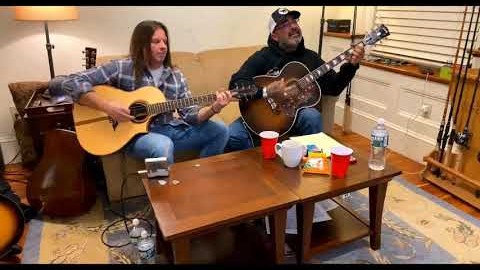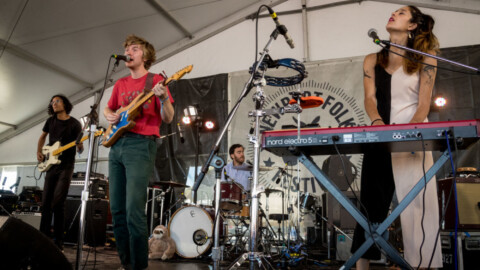
The first season of Star Wars TV spin-off The Book of Boba Fett, which concluded this week, seemed like an open goal. After two hit seasons of The Mandalorian, Boba Fett would finally, finally give Star Wars fans what they’ve craved – or acted out themselves with action figures – for decades: adventures following the fearsome, mysterious bounty hunter Boba Fett, first glimpsed in a TV special, then The Empire Strikes Back, and then finally Return of the Jedi, during which he appeared to be unceremoniously killed. He was resurrected, now played by fan fave Temuera Morrison, during a recent episode of The Mandalorian, which later teased Fett’s own spinoff.
But, of course, nothing stays simple for long with Star Wars or its massive, complicated, contradictory fandom. Boba Fett ended its first season with more broad questions about the future of Star Wars than it had answers for – including, notably, whether or not this really is “season one” of an ongoing show, or a one-off Mandalorian season 2.5.
It sure seemed like the latter when the series dedicated two full instalments to catching up with Mando and his adopted son Grogu (aka Baby Yoda). Some fans were relieved by this detour, having grown impatient with Fett’s slower-paced solo jaunt. For a while, the show toggled between a lackadaisically paced crime saga, set right after The Mandalorian season two, wherein Boba Fett assumes the throne of Jabba the Hutt (unlike Darth Maul and Fett himself, Jabba is apparently staying in the ground); and flashback sequences detailed how Fett escaped certain death.
Both timelines had their delights. Unlike The Mandalorian, which has sometimes been self-consciously spartan, The Book of Boba Fett overflowed with creatures, droids, ridiculous lore, and new characters, like the “mods,” a gang of Tatooine bikers with modified cybernetic body parts. If The Mandalorian quietly but firmly reintroduced a number of ideas from the prequels and animated series The Clone Wars into a different stretch of the Star Wars timeline, Boba Fett seemed positively giddy at the opportunity. We got Naboo starfighters from The Phantom Menace, villainous mercenary Cad Bane and even a Tusken Raider train robbery.
But it’s easy to understand why some viewers didn’t gel with the show. The Book of Boba Fett had a baffling structure, with poorly integrated flashbacks that halted abruptly halfway through the season and an equally sudden swerve away from Boba Fett himself shortly thereafter.
Really, why did a show called The Book of Boba Fett feature an entire episode dedicated primarily to catching up with Mando, Grogu, Ahsoka Tano and a digitally reproduced Luke Skywalker? At minimum, shouldn’t Boba Fett interact with those characters? Better yet, we could all stand for a break from Luke Skywalker, who is a wonderful character when played by Mark Hamill, and less so when recreated by a computer program.

The seventh and final episode of the season integrated the Mandalorian and Fett characters more successfully. it was basically an episode-long shoot-out bringing together a bunch of Tatooine misfits and miscreants. A lot of it still amounted to blatant fan service – a rancor running wild! Mando with a darksaber! Fett fighting Cad Bane! Yet it had energy courtesy of director Robert Rodriguez, satisfying Star Wars mayhem, and more material for the new characters like mod leader Drash (Sophie Thatcher) and an amusing Twi’lek toady (David Pasquesi). Terrific fun, in other words, without quite explaining why the show took such a circuitous path to get there (or why this was a show at all, rather than a two-hour movie).
So what does this all mean for the future of Star Wars?
It’s hard to say – in part because the next couple of live-action shows, the Obi-Wan Kenobi series with Ewan McGregor and the Cassian Andor spin-off with Diego Luna, have already finished shooting. On a pure plot level, the show sets up both a Mandalorian return to status quo (Mando and Grogu going on adventures) and a possible second season of Boba Fett serving as de facto mayor of Mos Espa. Nothing too surprising on either front. There’s also a mid-credits scene with the tedious suggestion that Star Wars character deaths are about to become as permanent as they are in the MCU. The previously deceased Cobb Vanth is shown hooked up to a bacta tank, complete with live-preserving cybernetic mods.

More broadly, Fett seems caught between two competing expectations. Let us explain. The wealth of Star Wars TV series Disney has on its docket should give those individual shows the freedom to explore different corners of the universe, unencumbered by some kind of master plot. The best parts of Fett leaned into that. However, the rapturous fan response to seeing Mando and Grogu again suggests that Lucasfilm may become as addicted to those characters as they are to the specter of Luke Skywalker. It’s fan service vs serving the show – a common showdown that the latter rarely wins.
A lot of fans have also seemed eager to anoint Boba Fett creator/writer Jon Favreau (and, to a lesser extent, his Clone Wars veteran collaborator Dave Filoni) the new mastermind of Star Wars. This is much easier to fantasise about if you don’t actually know much about Favreau’s career. Over the years, he’s transitioned from injecting his riffy, actor-friendly comedy into Iron Man movies to marching through the soulless franchise stewardship of projects like that awful Lion King remake. None of this indicates that he’s especially good at western-influenced sci-fi. Neither, frankly, does a lot of the writing on Boba Fett, which was often happily overshadowed by the show’s lovable menagerie of Star Wars alien weirdness.
Anyway, Star Wars is in no particular need of an all-seeing mastermind. Conventional wisdom says that the sequel movie trilogy was undone by poor planning, but The Book of Boba Fett suggests that focusing on how one series weaves into another will distend and distort otherwise enjoyable seasons of television. The question is whether future Star Wars shows (and movies) will be allowed to stand on their own.
The post What does ‘The Book Of Boba Fett’ mean for the future of Star Wars? appeared first on NME.







